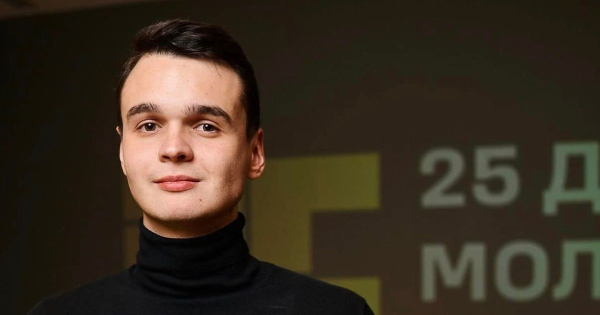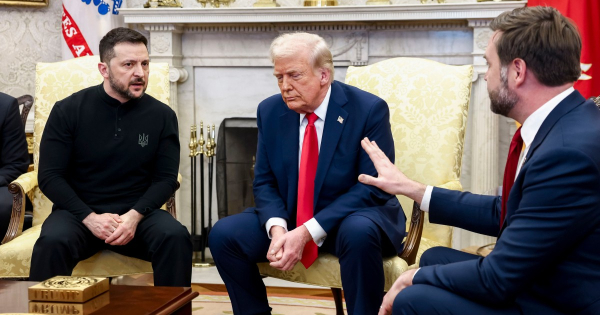
It has been almost seven months since the Russian president escalated the Ukrainian crisis into a full-scale invasion. In that time, it has become clear he underestimated two things (Photo: kremlin.ru)
The stunning military successes of the Ukrainian armed forces in territory Russia had been controlling since the crisis began in 2014 marks a dramatic turning point in this war. Russian forces appear to be on the brink of defeat.
That being said, the unpredictability of this conflict means the Ukrainian counter-offensive should be taken with some caution.
Vladimir Putin has said Russia’s plans will not change as a result of the Ukrainian advances and insisted the Russian offensive in Donbas remains on track.
It has been almost seven months since the Russian president escalated the Ukrainian crisis into a full-scale invasion. In that time, it has become clear he underestimated two things.
First, the bravery and willingness of the Ukrainian people themselves to sustain a fierce resistance to the unprovoked act of aggression.
Second, the resolve of Nato and its partners to maintain its political, economic, and military support of Ukraine.
Putin’s “special military operation”, which aimed to “demilitarise” and “de-Nazify” Ukraine, faces the very real prospect of defeat. The Ukrainian armed forces have consolidated their advances in the northeastern region of Kharkiv. They have retaken the strategically important cities of Kupyansk and Izyum, which the latter Russia has been using as a key military staging post.
This lightning counter-offensive represents a repeat of Russia’s failure in the initial phase of the war to seize Kyiv.
After losing the battle to take the Ukrainian capital, Russia redefined the scope of its operation with the stated goal to ‘liberate’ Donbas. The changing picture of the military situation means that aim now looks increasingly precarious. Ukraine finds itself in a strong position to cut Russian forces off from the north and make further territorial gains eastward. The pathway to Luhansk has already begun to open up for the Ukrainian forces after their successful breach of Russia’s defensive lines along the Oskil river.
Notwithstanding the remarkable Ukrainian advances, a Russian defeat would not necessarily translate into regime change in Moscow. It is likely that Putin will try to spin his military setbacks as evidence of what the Kremlin perceives as an existential threat facing Russia.
Prosperity, lies, and fear
The political scientist Adam Przeworski once wrote that authoritarian equilibrium rests on three pillars: economic prosperity, lies, and fear.
The Russian president secured his popularity during the period of high oil prices and economic reform in the 2000s.
Over time, however, Russia’s economic growth has suffered from corruption and limited competition under Putin’s authoritarianism. Two years before Putin launched the full-scale attack on Ukraine, real household incomes in Russia were seven percent below their peak in 2013.
Unable to deliver economic prosperity for the Russian people, Putin has relied on the two other pillars of Przeworski’s theory — fear and deception — to perpetuate his centralised political system. For Putin, these two pillars can be utilised by sustaining the war in Ukraine.
This inherent limitation of authoritarianism can be seen in the Kremlin’s response to the Ukrainian counter-offensive. Russia will push on until “all its military goals” had been met, namely the protection of the ethnic Russian population in Donbas from the false claim of genocide.
The durability of the paranoia at the centre of the Russian state should call for a reevaluation of the West’s response to the war in Ukraine. To date, Russia’s intervention has been met with a deployment of Nato forces in Eastern Europe on a scale not seen since the height of the Cold War.
In the period between October 2021 and March 2022, troop numbers under direct Nato control have increased from 4,000 to 40,000. The need to strengthen the capabilities of Nato member states to withstand Russia’s use of conventional warfare is the alliance’s reasoning for its intensified security presence.
As far as Putin is concerned, Nato rapid mobilisation in response to the full-scale invasion aligns with Przeworski’s pillars of fear and deception that are keeping his authoritarian system alive.
The presence of Nato reinforces the Russian president’s false narrative of the need for an assertive state in response to the West’s menacing intentions towards Russia.
Following the collapse of the Soviet Union, many Russians turned to Kievan Rus as the source for their national identity. It is the Orthodox state where modern-day Russians, Belarusians, and Ukrainians can trace back their origins.
Unpicking the paranoia
For Putin, the close proximity of Nato to Russia’s borders represents another attempt by hostile forces to undermine what Russians see as their exclusive claim to inherit the lands of Kievan Rus.
In the televised announcement of the “special military operation”, the Russian president referred to Nato eastward expansion after the end of the Cold War as “fundamental threats, which irresponsible Western politicians created for Russia consistently, rudely, and unceremoniously.”
To break this cycle of fear that Putin uses to fuel his war, Western leaders should begin to reconsider their Nato-centric Russia policy. In moving beyond confrontation as the guiding principle of East-West relations, conditions can be created to unpick the pillars of fear and deception that sustain Putin’s grip on power.
One of the unintended consequences of the collapse of the Soviet Union has been the challenge for Nato to redefine its place in the emerging multipolar international system. The alliance can no longer turn to the Soviet threat as justification for its existence. This means that ending the violence in Ukraine will require the type of leadership and statecraft that was exercised so effectively during the final years of the Cold War.
The task of restoring Ukraine’s sovereignty and territorial integrity does warrant a serious assessment of the West and its relationship with a declining and revisionist power in Putin’s Russia. The potential of the Russian president being humiliated in Ukraine will not be enough to stop him.
Source: euobserver.com



